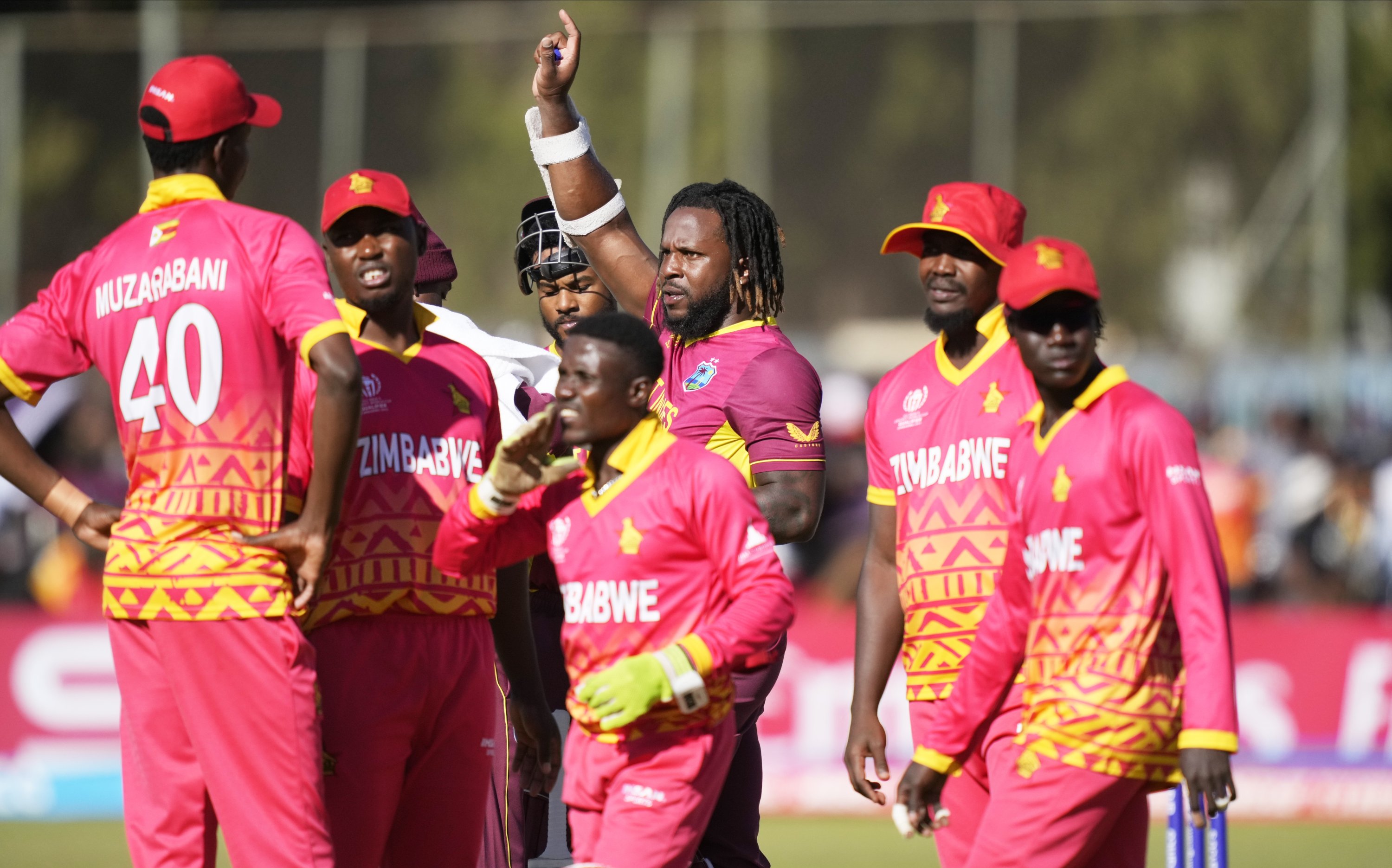© Turkuvaz Haberleşme ve Yayıncılık 2026
Bill Flower, a visionary cricket enthusiast, foresaw the need to embrace Zimbabwe's Black majority to ensure the survival and growth of the sport in the country.
Now, three decades later, his efforts have borne fruit as Takashinga Cricket Club, nestled in one of the oldest Black townships, proudly hosted its first-ever international match.
Takashinga, once the spiritual hub of Black cricket in Zimbabwe, has now transformed into a fully fledged international venue.
This significant milestone was marked on June 18 when the West Indies triumphed over the United States in a Cricket World Cup qualifying game.
Living up to its name, which translates to "We persevered" in the local Shona language, Takashinga celebrated this momentous occasion.
Andy Flower, former Zimbabwe captain, Ashes-winning coach with England, and son of Bill Flower, expressed his pride and reflected on his father's role in this extraordinary journey.

"It's absolutely fantastic, and I know that my father would be very proud to witness it, and I'm certainly proud," said Andy, who himself had once played for Takashinga.
The significance of Takashinga's emergence as an international ground is magnified by Zimbabwe's ongoing participation in the World Cup qualifiers.
A victory against Scotland on Tuesday would secure their qualification for the prestigious tournament in India later this year.
Even though Zimbabwe did not play at Takashinga during the qualifiers, the club's newfound international status adds a special touch to their cricketing journey.
Bill Flower's involvement began in the early 1990s when he devoted his own resources to coach young Black kids from Harare's Highfield township, where Takashinga is located.
Back then, cricket facilities were scarce in Highfield, and families could not afford to send their children to Harare Sports Club for practice.
Bill Flower, utilizing his reputation as a coach, took it upon himself to transport the aspiring cricketers to the prestigious club in his own car.
In Highfield, Bill Flower discovered exceptional talents like Tatenda Taibu, who joined his coaching squad at the tender age of nine and went on to become a Zimbabwean test captain.
Recognizing the potential beyond players, Bill Flower also embraced the opportunity to build something greater in Highfield by collaborating with the newly-formed Takashinga Cricket Club.
Andy Flower, a prominent white player and Zimbabwe's finest at the time, followed in his father's footsteps by recognizing the significance of Highfield in shaping Zimbabwean cricket.
He made the momentous decision to join the relatively unknown Takashinga team. "I knew how committed they were in building their club," Andy explained. "I thought it was helpful to have some of my experience, go there and work with them at training, during games, talk to them in the dressing room... That was a special time in my life."
Takashinga's impact extended beyond players, with several members progressing to become captains of the national team.

Stephen Mangongo, one of the club's founding members, even became the coach of the Zimbabwe cricket team.
Mangongo acknowledged the club's role in fostering self-belief among Black individuals across the country, taking cricket seriously on a national scale.
However, the journey towards complete transformation required the elevation of cricket to the highest level in Highfield.
Although the fixture list didn't align perfectly, the significance of West Indies playing on Takashinga's international debut was not lost.
As a team that has won two World Cups and made significant strides in advancing Black cricket worldwide, West Indies was an ideal choice.
The historical West Indies-U.S. game drew spectators of all ages, with 8-year-old Sakina, an avid cricket enthusiast, among them.
Hailing from Highfield and attending a school just a stone's throw away from Takashinga, Sakina dreams of one day representing Zimbabwe and playing numerous matches on the hallowed grounds of Takashinga. Her passion for cricket exemplifies the club's ability to inspire and influence young lives.
Takashinga's impact reverberates throughout the community, transcending generational boundaries.
Nathaniel Mavima, a 50-year-old resident of Highfield, admitted to being oblivious to cricket until Takashinga gained recognition in the early 2000s.
Over the years, the club has evolved into a beloved community center, drawing people from all walks of life.
Hamilton Masakadza, another success story associated with Takashinga, fondly recalled the official opening of the ground in 2003.
The ceremony was graced by West Indies legend Brian Lara, whose team used Takashinga as a practice venue during their tour.
A plaque commemorating this momentous occasion, where one of cricket's greatest players inaugurated the ground, still adorns the club's house.
It took twenty more years for international cricket to find its way to Takashinga, and the significance of the moment was not lost on Trevor Garwe.
A former Takashinga bowler who represented Zimbabwe in a single game in 2009, Garwe returned to his beloved club as a venue manager for the World Cup qualifying tournament.
He acknowledged that the first game held at Takashinga was a testament to the children of Highfield who, due to financial constraints, were unable to watch the sport they love at other stadiums.
"Takashinga has brought it home," exclaimed Garwe, capturing the essence of this extraordinary achievement.
The club's long-standing commitment to inclusivity, talent development, and community engagement has finally culminated in the realization of their dream – an international cricket match played on the hallowed grounds of Takashinga.
